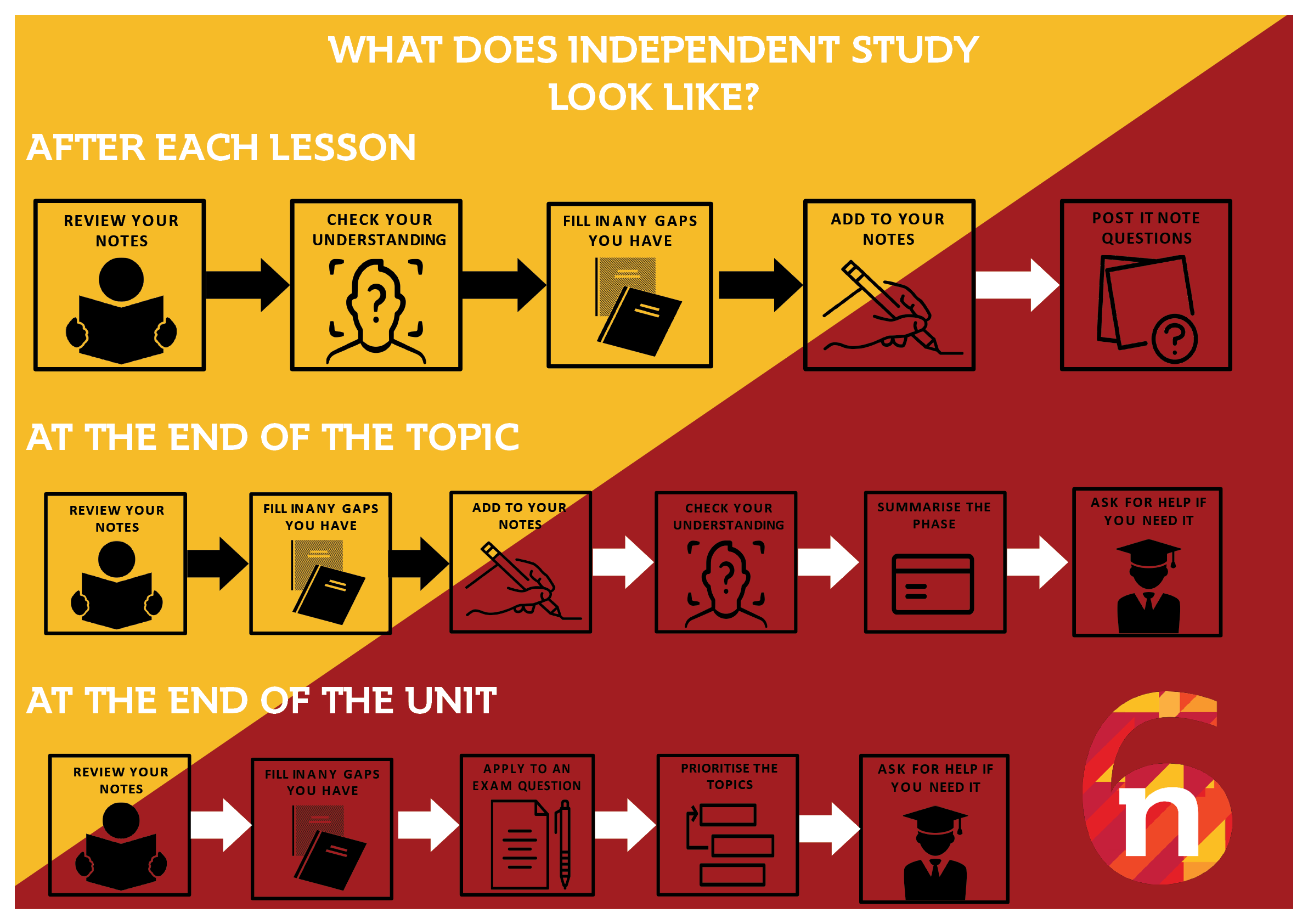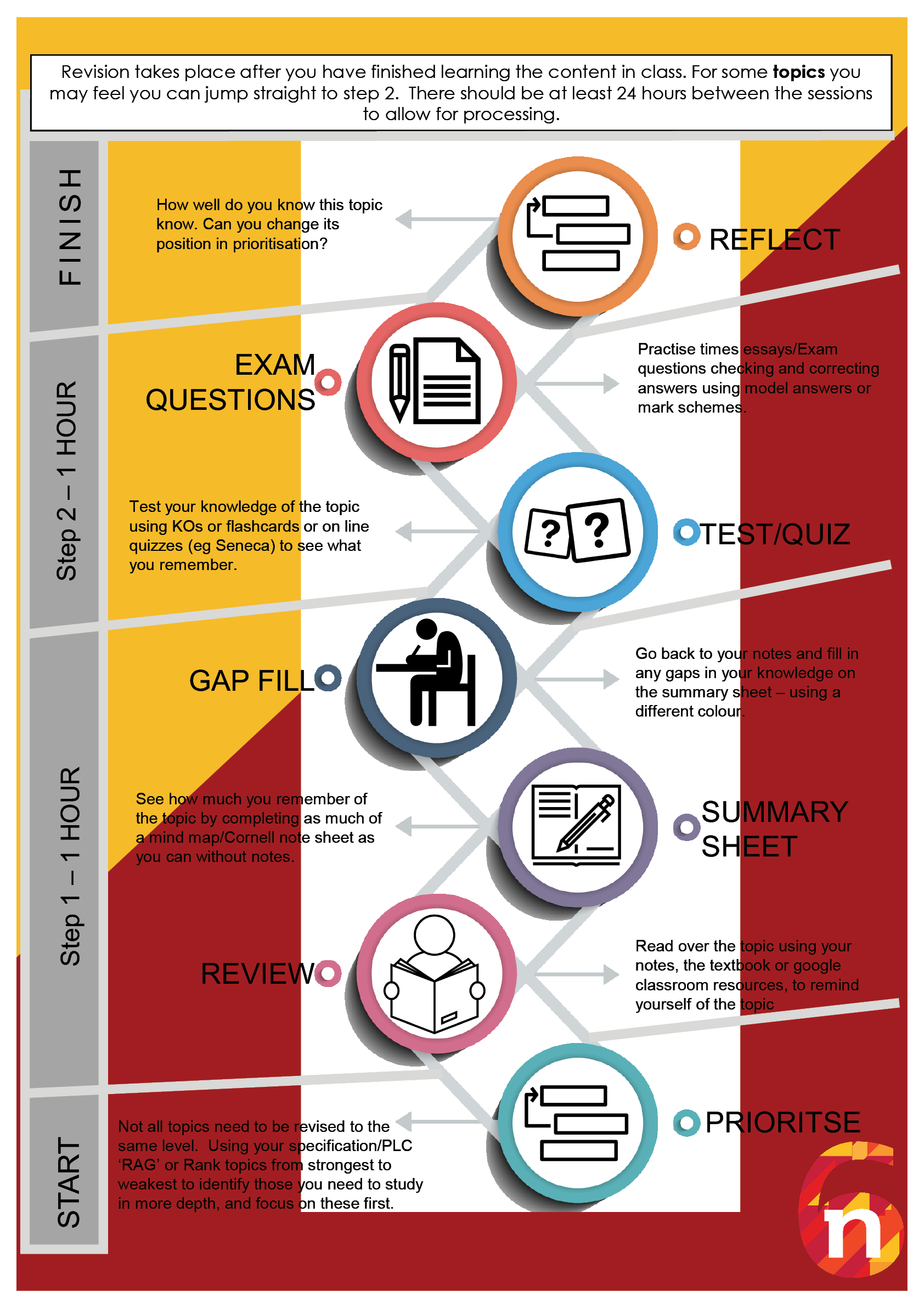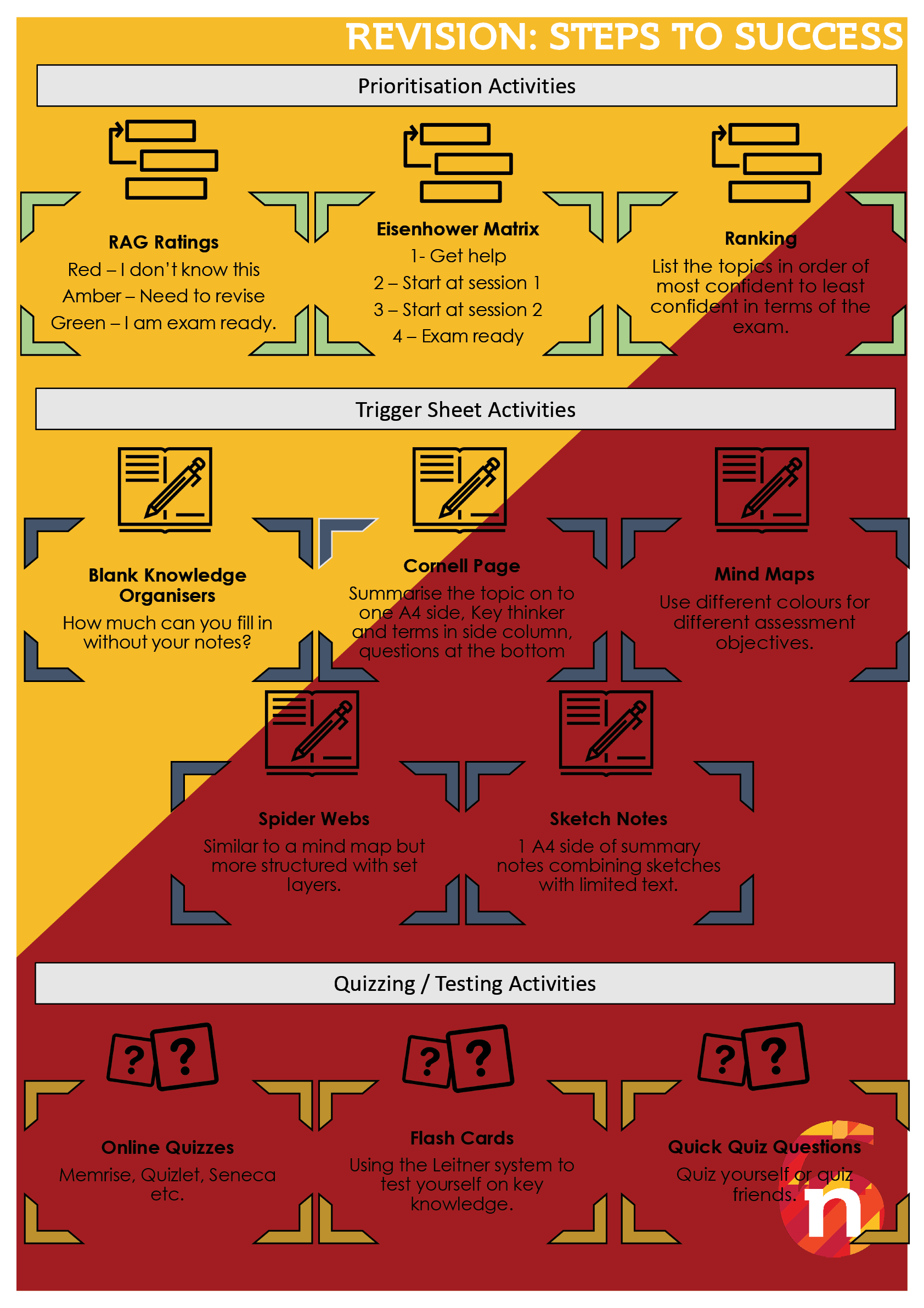
One of the key messages you (students) need to know when it comes to study skills is the difference between study and revision. For many students, they see them as the same thing and something that is done before a test or assessment.
However, they are different from one another and neither should be left to the last minute.
Independent Study
In Year 12 and 13, you (students) should be doing about an hour of independent study for every hour they are in class. So that works out as about 5 hours per week per subject. This is NOT revision and takes place whilst you are still learning the content of the course.
Independent study is not homework, it should be a routine that you (students) get into which consolidates on what is done in class, check understanding and write down any questions they have on what has been covered.
However many students do not really know how to undertake independent study so we have created this sheet to help you structure their independent study:

Independent study should be completed throughout the learning phase. The learning phase is when you are learning the content of your course and can be broken down into subtopics of the course, for example Functionalist Theory of the Family in sociology, The SOcial Area in Psychology or GIVE ANOTHER EXAMPLE HERE.
Independent Study Display Board

REVISION
Revision is what takes place after the teaching is complete, and if the independent study has been done it shouldn’t be too overwhelming or arduous. To help you (students) ensure that your revision is effective, look at this process diagram with some options of activities for you to complete. Revision is very individual and you need to find what suits you best. In tutor, we will go through a series of revision techniques to help you find your most suitable technique.


It is not intended that all sessions are done at the same time and not all topics will need to go through both sessions. This is where prioritisation of topics is important. Many students often think that they have to revise everything to the same level when they don’t, also they tend to revise what they already know, because it makes them feel good. Prioritisation means that you can focus where you need to focus and hopefully not feel so overwhelmed.
The other thing that is important is that you (students) understand that there must be a 24 hour break between the sessions. This gives the brain time to process the material and make it easier for you (students) to work out what you know and what you have forgotten.
A trigger sheet is a summary of the topic on a single A4 side. This could be Cornell notes. It is to act as a memory trigger for you rather than everything you need to know. There are lots of ways that you can do this, and it really is up to you to do what works for you, the options given are just ideas, but to be a trigger sheet the topic must be contained to a single A4 side. This also shows how well you know the topics as it is much easier to summarise when you know the topic well.


